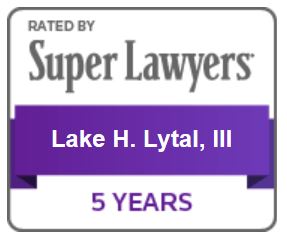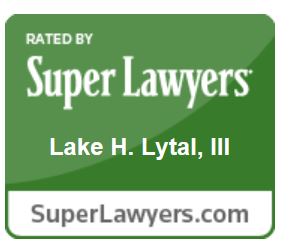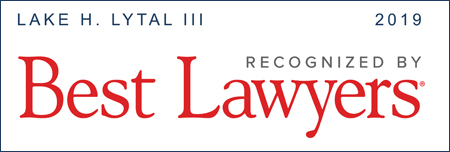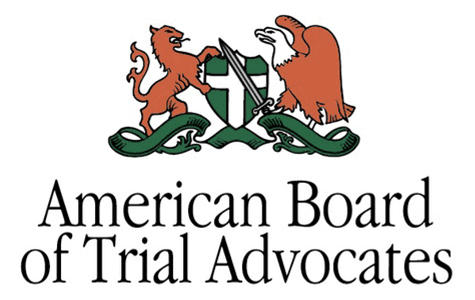A qualified nursing home abuse lawyer can help you file a claim against the abuser and seek compensation for the damages you have suffered. Most importantly, you can help us prevent the abuser from hurting anyone else.
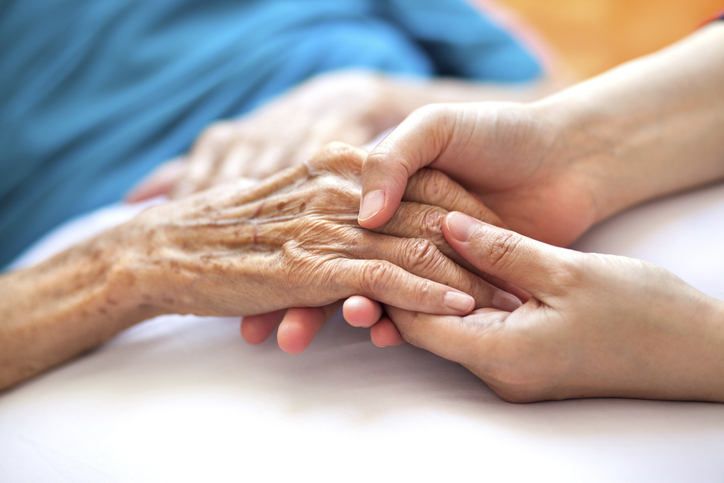
To speak with a Boca Raton nursing home abuse lawyer, contact Lytal, Reiter, Smith, Ivey & Fronrath. As one of the most successful and respected personal injury firms in the nation, we help victims get the justice they deserve. Contact us at (561) 655-1990 for a free consultation.
Nursing Home Abuse and Neglect Claims We Handle
Our team at Lytal, Reiter, Smith, Ivey & Fronrath have extensive experience handling nursing home abuse and neglect claims. We have successfully represented victims of all types of nursing home abuse, including:
- Physical abuse
- Emotional abuse
- Sexual abuse
- Neglect
Contact us today for a free consultation. We’ve won billions for our clients and look forward to helping you, too.
How do I know if my loved one suffers from nursing home abuse or neglect?
Nursing home abuse and neglect can be nearly invisible, but some signs may indicate that your loved one is being abused or neglected.
Some common signs of nursing home abuse and neglect include:
- Bruises, cuts, or other injuries that are unexplained or inconsistent with the explanation provided
- Unusual weight loss or gain
- Frequent falls or accidents
- Bedsores or other skin problems
- Poor hygiene or spoiled food
- Sudden downturn in health conditions
- Changes in mood or behavior, such as withdrawal or aggression
If you notice any of these signs, it is crucial to speak with your loved one and seek legal help right away.
How are nursing homes regulated in Florida?
Nursing homes in Florida are subject to a rigorous inspection process by the Agency for Health Care Administration.
The U.S. Department of Health and Human Services also has oversight, with its Centers launching federal investigations into nursing home neglect or abuse on behalf of beneficiaries who receive care there under Medicare/ Medicaid programs.
Types of Nursing Home Abuse
Physical Abuse
Physical abuse is the most easily recognizable form of nursing home abuse and involves inflicting bodily harm on a resident. This can include hitting, slapping, pushing, or otherwise assaulting the resident.
It’s not always easy to spot physical nursing home abuse, as the injuries can be hidden or inconsistent with the explanation provided.
However, some common signs that abuse may be taking place include unexplained bruises, cuts, or other injuries; weight loss or gain; falls or accidents; bedsores or skin problems; and changes in mood or behavior.
If you notice any of these signs, it is important to speak with your loved one and seek legal help right away.
Emotional Abuse
Emotional abuse is often harder to detect than physical abuse. Emotional abuse can involve yelling, shaming, or verbally assaulting the resident.
It can also involve isolating the resident from friends or family or denying them access to necessary medical care or services.
Emotional abuse can be just as damaging as physical abuse and can leave the resident feeling scared, alone, and helpless.
Sexual Abuse
Sexual abuse can leave the victim feeling ashamed, embarrassed, and humiliated.
This type of abuse can involve unwanted touching, sexual assault, or rape, as well as forcing the residents to make or watch pornographic materials.
If you believe that your loved one has been sexually abused, it is important to contact the police and seek legal help right away.
What Conditions May Worsen Nursing Home Abuse?
Alzheimer’s and Dementia
Alzheimer’s disease and dementia are conditions that can make it difficult for the resident to communicate their abuse.
They may also be less likely to remember the abuse or be able to identify their abuser. This makes it more difficult for the residents to get the help they need.
Stubbornness/Embarrassment
Some residents may be stubborn and refuse to leave their rooms, even if that’s where the abuse is taking place. Their abuser may have made threats, or the elderly may be dependent on the abuser somehow.
Abuse can be incredibly humiliating. In addition to the loss of independence that comes with entering a nursing home, an elderly person may be too embarrassed to address abuse. Or, they worry about becoming a more significant burden on their loved ones.
If your elderly loved one is in denial, fears changing their living situation, or becomes upset when you question them, don’t lose hope.
We can help your family hold the facility accountable while maintaining your loved one’s dignity.
Social Isolation
Many nursing home residents are socially isolated. They may not have anyone to talk to about what is happening.
They may also feel like they have no one to turn to for help. This is especially true if they don’t have many friends or family.
Victims of abuse will also turn down opportunities to socialize. If your loved one suddenly doesn’t engage with other residents or visitors, take a closer look at their living situation.
History of Difficulty Communicating
Elderly patients who have trouble with speech or hearing may not be able to address their abuse. The same applies to patients with cognitive disabilities.
In fact, their abuser may have chosen them because they are less likely to tell on them.
In these cases, loved ones and trusted staff members are responsible for identifying and reporting abuse. We must speak for those who cannot speak for themselves.
Who can be held responsible for nursing home abuse?
Anyone responsible for the care of a nursing home resident can be held accountable for nursing home abuse. This includes the nursing home staff, facility managers and administrators, or private companies that own nursing homes.
If you feel that someone you know is being abused in a nursing home, report it. You can contact the nursing home staff, local law enforcement, or a lawyer who specializes in elder abuse cases.
How soon will I need to file a nursing home abuse lawsuit?
In Florida, you have two years from the date of the last instance of abuse.
It is important to speak with a Boca Raton nursing home abuse lawyer as soon as possible after you have been the victim of abuse so that you can ensure that your case is filed within the applicable period.
How Can Our Boca Raton Nursing Home Abuse Lawyer Help You?
When a victim of nursing home abuse comes to our lawyers, one of the first steps is to begin collecting evidence. This can include physical evidence, such as photos of bruises or scars, as well as witness testimony or emails or text messages from the abuser.
Your lawyer will proceed to build a case against the abuser. This can involve filing a lawsuit against the abuser and seeking compensation for the damages the victim has suffered.
If you need to speak with a Boca Raton nursing home abuse lawyer, contact Lytal, Reiter, Smith, Ivey & Fronrath today. We have the experience and resources to help victims of nursing home abuse get the justice they deserve.
Fighting for Your Family When You Need It Most
Often, victims are too afraid or embarrassed to speak up about the abuse they have suffered, which can make it challenging to get the justice they deserve.
At Lytal, Reiter, Smith, Ivey & Fronrath, we understand that you need someone you can trust to fight for your family.
For more than 30 years, our firm has taken claims of negligence, abuse, and other losses to court. We aren’t afraid of powerful corporations, massive insurance companies, or other teams of powerful attorneys. We’re only concerned with ensuring our clients are compensated for their losses.
Read some of our client testimonials to get a better idea of what we can do for you and your loved ones.
What Kind of Damages are Available in a Nursing Home Abuse Lawsuit?
When you file a lawsuit against a nursing home, the goal is to receive compensation for damages.
These damages can include:
- Medical expenses
- Pain and suffering
- Emotional distress
- Physical therapy
- Diminished quality of life
- Loss of companionship
- Loss of consortium
- Punitive
- Estate recovery
A Boca Raton nursing home abuse lawyer will help you identify which damages were suffered and how much they’re worth.
Nursing Abuse vs. Neglect
Nursing home abuse is when someone intentionally hurts a nursing home resident. This can include physical, sexual, or emotional abuse.
Neglect occurs when the nursing home does not provide the necessary care. This includes nutrition, medical care, hygiene, and more.
How can I stop nursing home abuse?
If you are a victim of nursing home abuse, there are several things you can do to stop the abuse.
You can:
- Report the abuse to staff or management
- Talk to a lawyer
- Contact local law enforcement
If you are unable to do any of these things, someone else can help you. You can talk to your doctor, therapist, or friend about what is happening.
If you feel that your loved one is being abused in a nursing home, act quickly. Always share your concerns with management and contact the local police when necessary. Then, call an elder abuse attorney who can begin collecting evidence.
Meet a Boca Raton Nursing Home Abuse Lawyer
Nursing home abuse has devastating consequences for the victim and their family. Abusers can rob an elderly person of their physical and emotional health.
If you believe your loved one has been victimized by their caretaker or another family member, don’t second-guess yourself. Make a record of everything and contact an attorney as soon as possible.
The attorneys at Lytal Reiter Smith Ivey & Fronrath understand how complex this process can be. They’ve helped many victims of elder abuse win justice against those who hurt them so deeply.
Call us today at (561) 655-1990 to schedule your free consultation.
Schedule a Free Consultation With a Top Nursing Home Abuse Attorney
Ready to talk with a team member about your case? No matter where you’re at in the process or how recently the nursing home abuse happened, we’d love to hear about your case and help.
Call 561-655-1990 OR
Send us a message
To schedule your free, no-obligation consultation today.
You don’t pay until we win



